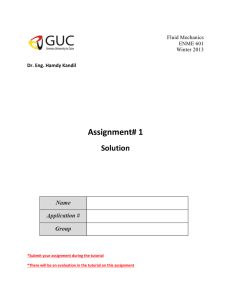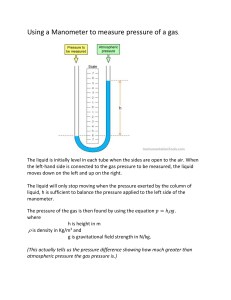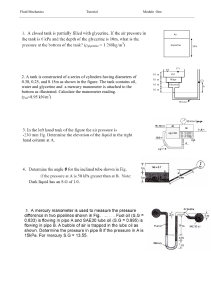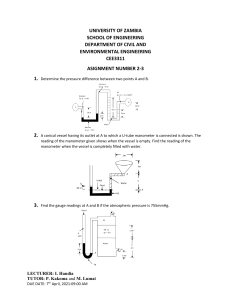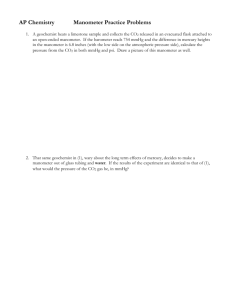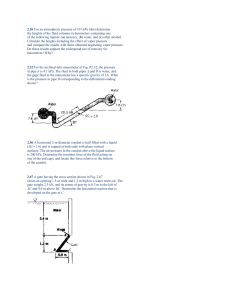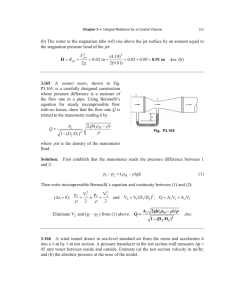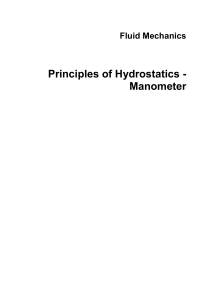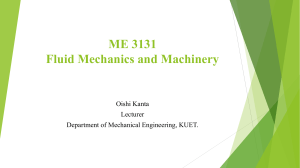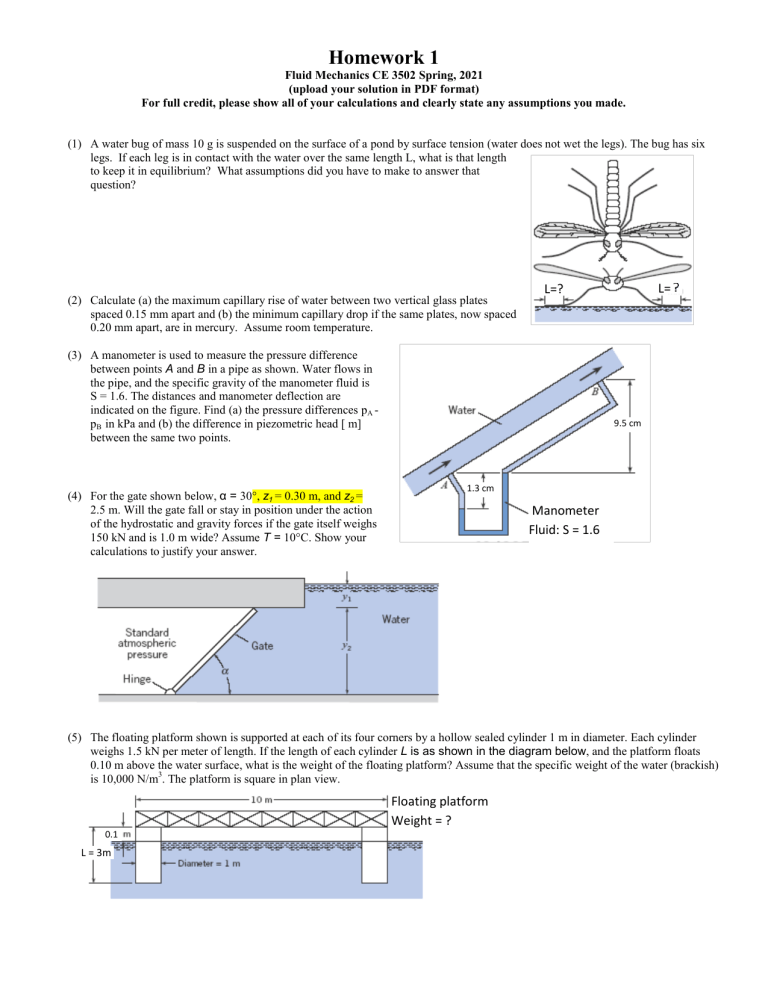
Homework 1 Fluid Mechanics CE 3502 Spring, 2021 (upload your solution in PDF format) For full credit, please show all of your calculations and clearly state any assumptions you made. (1) A water bug of mass 10 g is suspended on the surface of a pond by surface tension (water does not wet the legs). The bug has six legs. If each leg is in contact with the water over the same length L, what is that length to keep it in equilibrium? What assumptions did you have to make to answer that question? (2) Calculate (a) the maximum capillary rise of water between two vertical glass plates spaced 0.15 mm apart and (b) the minimum capillary drop if the same plates, now spaced 0.20 mm apart, are in mercury. Assume room temperature. (3) A manometer is used to measure the pressure difference between points A and B in a pipe as shown. Water flows in the pipe, and the specific gravity of the manometer fluid is S = 1.6. The distances and manometer deflection are indicated on the figure. Find (a) the pressure differences pA pB in kPa and (b) the difference in piezometric head [ m] between the same two points. (4) For the gate shown below, α = 30°, z1 = 0.30 m, and z2 = 2.5 m. Will the gate fall or stay in position under the action of the hydrostatic and gravity forces if the gate itself weighs 150 kN and is 1.0 m wide? Assume T = 10°C. Show your calculations to justify your answer. L= L=? 9.5 cm 1.3 cm Manometer Fluid: S = 1.6 (5) The floating platform shown is supported at each of its four corners by a hollow sealed cylinder 1 m in diameter. Each cylinder weighs 1.5 kN per meter of length. If the length of each cylinder L is as shown in the diagram below, and the platform floats 0.10 m above the water surface, what is the weight of the floating platform? Assume that the specific weight of the water (brackish) is 10,000 N/m3. The platform is square in plan view. Floating platform Weight = ? 0.1 L = 3m
